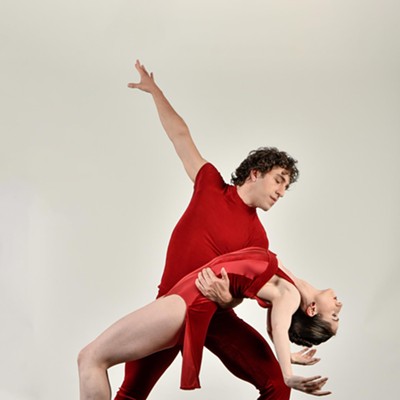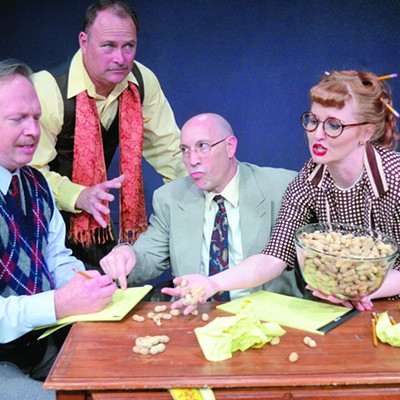UA College of Science Lecture Series: "The Ancestors in Our Brains"
7 p.m., Monday, March 3
Centennial Hall 1020. E. University Blvd.
621-4090http://cos.arizona.edu/connections/evolving-brain
You only have two more chances to check out UA College of Science's Lecture Series on "The Evolving Brain"—and this week's talk on how the primitive part of our brains interact in the more modern, cerebral parts sounds like real eye-opener.
Doctor Katalin M. Gothard, an associate professor of physiology and neurobiology, will be talking about "The Ancestors in Our Brains."
Gothard says her talk will explore how the primitive part of the brain interacts with the more modern cerebral cortex and gives humans "the ability to think about the future and not only the present and the past."
In other words, humans have the power of imagination, which allows us to be "capable of rehearsing future events," says Gothard.
But Gothard adds that even with our advanced reasoning power, many of the decisions we make are based in the primitive part of the brain. We will often make decisions and then come up with ways to rationalize why we did what we did.
"Our brain listens to very primitive input, from our hearts, from our lungs, from our gut, from our bone system that releases our immune cells," she says. "The body sends an enormous amount of information to the brain. The way we feel, as a coordinated mind-body state at any moment, is the primary cause for the mind to make a decision one way or the other. We can justify it in a purely intellectual way, but a lot of decisions are made at a very primal level."
The lecture is free, but you'll want to get there early because Centennial Hall tends to fill up for these talks.
The series wraps up next Monday, March 10, with "More Perfect Than We Think," a talk by Princeton University physics professor William Bialek on how the brain manages to solve the day-to-day challenges it encounters.












